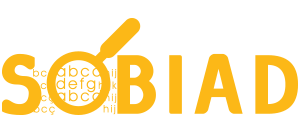Guidelines and Recommendations for Authors Using AI in Manuscript Preparation
Guidelines and Recommendations for Authors Using AI in Manuscript Preparation
Integrating Artificial Intelligence (AI) in academic writing has brought significant advantages, including enhanced productivity, improved language quality, and efficient data analysis. However, the use of AI in manuscript preparation requires transparency, ethical considerations, and adherence to academic integrity standards.
This article aims to provide guidance and recommendations for authors who utilize AI tools to prepare manuscripts for submission to The Journal of European Internal Medicine Professionals (JEIMP).
1. Transparency and DisclosureAuthors are required to disclose the use of AI tools during manuscript preparation. This includes, but is not limited to:
- Writing assistance (e.g., grammar and style checks by AI tools like Grammarly or ChatGPT).
- Data analysis or visualization (e.g., AI-based statistical software).
- Literature search and summarization.
Recommendation: Include a statement in the manuscript's "Acknowledgments" or "Methods" section specifying the AI tools used and their purpose. For example: "This manuscript was prepared with assistance from [AI Tool Name], used for [specific purpose, e.g., language editing, data analysis, or figure preparation]."
2. Ethical Use of AIAI tools should be used as supportive instruments rather than as substitutes for critical thinking and original contributions. Authors must ensure that:
- AI-generated content is fact-checked and validated for accuracy.
- The manuscript reflects the authors’ intellectual effort, interpretation, and conclusions.
- AI is not used to fabricate data, falsify results, or plagiarize existing works.
Caution: Misuse of AI, such as generating false citations or unverified information, constitutes academic misconduct and will lead to rejection of the manuscript.
3. Accountability and AuthorshipThe use of AI does not confer authorship. Human authors remain responsible for:
- The originality and integrity of the manuscript.
- Addressing ethical concerns related to the use of AI.
- Ensuring compliance with journal guidelines and ethical standards.
Recommendation: All authors should review and agree upon the AI-assisted contributions before submission. They must ensure that the use of AI does not compromise the scientific or ethical quality of the manuscript.
4. Limitations of AI in Manuscript PreparationAI tools have limitations, including:
- Lack of subject-specific expertise.
- Inability to fully understand nuanced arguments or novel hypotheses.
- Potential biases in generated content.
Advice: Authors should use AI as a complement, not a replacement, to their expertise. Rely on peer collaboration and expert feedback to refine the manuscript.
5. Journal Policy on AIThe Journal of European Internal Medicine Professionals (JEIMP) supports the responsible use of AI in academic writing, provided it adheres to the following principles:
- Full disclosure of AI use in the manuscript.
- Strict adherence to ethical standards.
- Verification and accountability for AI-assisted content by human authors.
Manuscripts that fail to disclose AI usage or demonstrate ethical lapses will be subject to editorial action, including rejection or retraction.
6. Resources and TrainingTo support authors in responsibly using AI tools, The Journal of European Internal Medicine Professionals (JEIMP) recommends:
- Reviewing AI capabilities and limitations through credible sources.
- Participating in workshops or webinars on academic integrity and AI usage.
- Consulting editorial teams for specific questions about AI-related policies.









